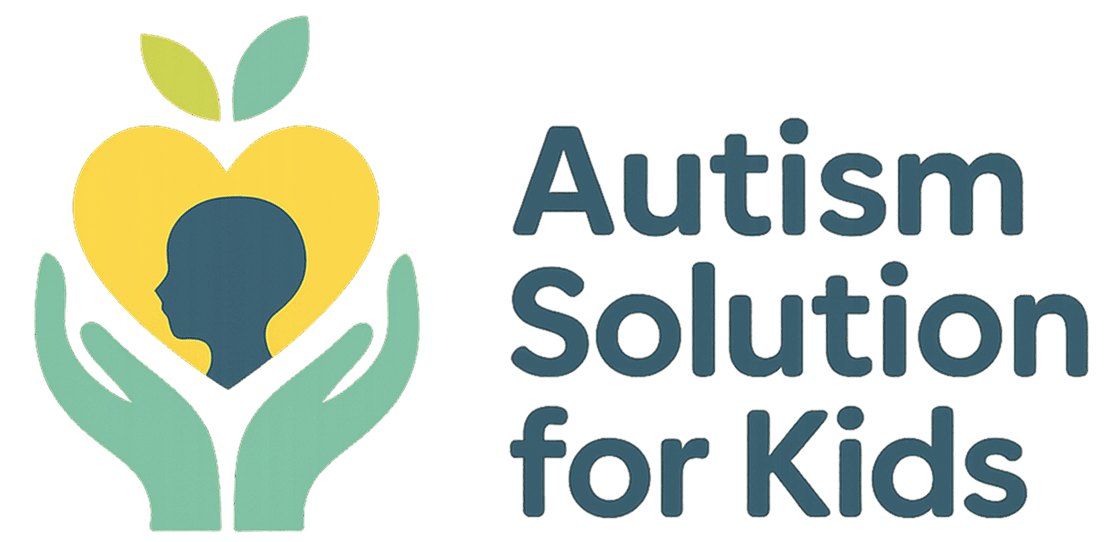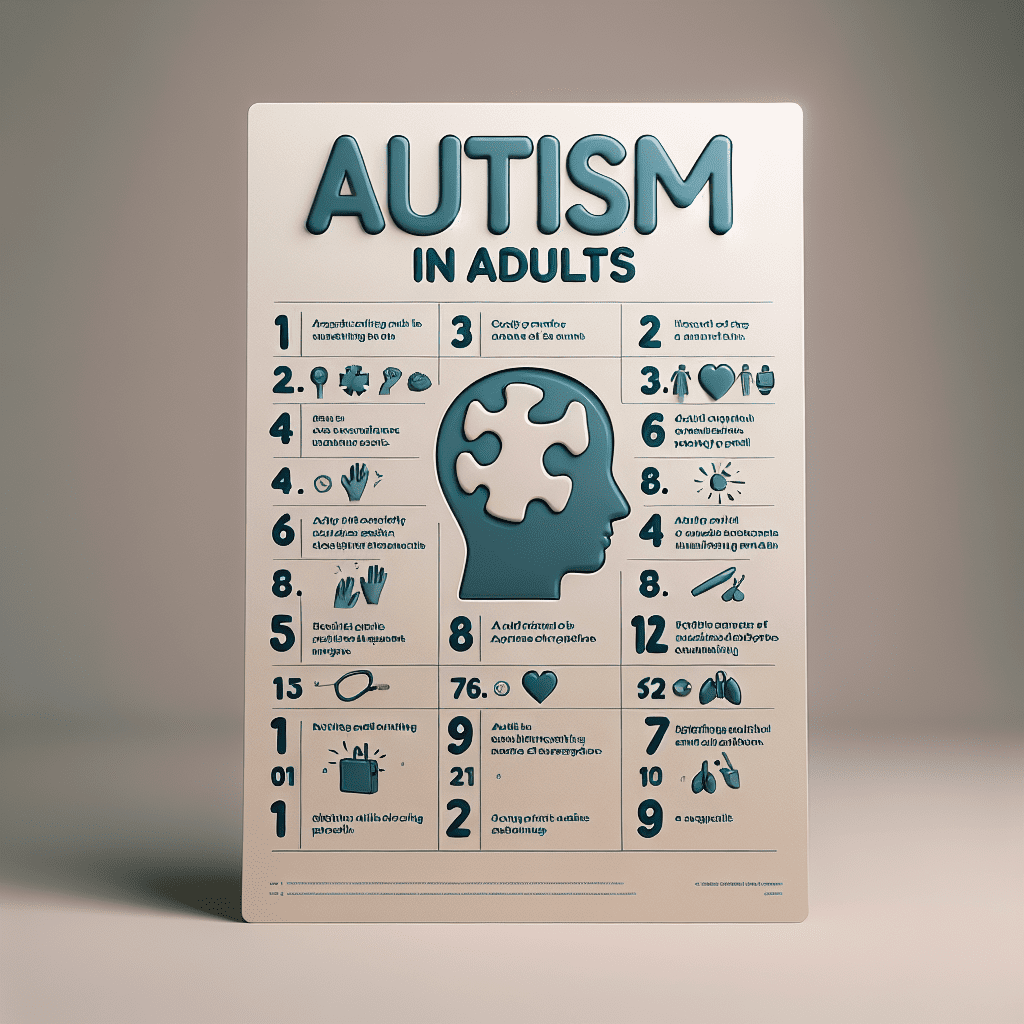What are the 12 Signs of Autism in Adults?
Discover the 12 signs of autism in adults. Learn to recognize the symptoms and enhance understanding. Click to explore more!
Autism Spectrum Disorder (ASD) is often perceived predominantly as a condition that affects children. However, many adults are living with autism, often without a proper diagnosis or understanding of their unique experiences. Unlike children, adults with autism may have developed coping mechanisms over the years, which can mask some symptoms. Understanding these signs is crucial not only for the individuals themselves but also for friends, family, and professionals dealing with them. So, what exactly are the 12 signs of autism in adults? In this comprehensive guide, we’ll delve into each sign and help shed some light on the often misunderstood world of adult autism.
1. Difficulties in Social Interactions
One of the primary indicators of autism can be found in the realm of social interactions. Adults with autism often struggle with understanding social cues, which can make engaging in conversations challenging. They may not pick up on non-verbal signals such as facial expressions or body language, leading to awkward interactions. This doesn’t mean they lack desire for social interaction; rather, the nature of their social skills may differ from the neurotypical standard.
Moreover, adults with autism may find small talk challenging. Engaging in casual conversation might feel overwhelming, as they often prefer deep and meaningful discussions over superficial interactions. Friendships might take longer to develop, but those that do can be incredibly strong and valuable. Recognizing these challenges in social interactions is vital in understanding what are the 12 signs of autism in adults.
A significant struggle for these individuals revolves around maintaining eye contact, which is often viewed as a sign of engagement in conversations. For someone on the autism spectrum, making eye contact can feel intrusive or uncomfortable. They may also appear to be uninterested during conversations, leading to misunderstandings.
2. Repetitive Behaviors or Routines
Repetitive behaviors are another prominent sign associated with autism. Adults might engage in specific habits, routines, or rituals that help them cope with anxiety or provide comfort. This can range from needing to follow a strict daily routine to engaging in repetitive movements like tapping fingers or rocking back and forth.
For some, these behaviors might take the form of obsessive interests, where they devote an excessive amount of energy to a particular activity or topic. This intense focus can be beneficial in skills development but might also manifest in difficulties when their routines are disrupted. If you ever wondered about what are the 12 signs of autism in adults, recognizing repetitive behaviors is essential.
It’s important to mention that these behaviors can often be viewed negatively by society. What may seem peculiar or unusual to others serves a significant purpose for adults on the spectrum, helping them navigate their daily experiences and uncertainties.
3. Sensory Sensitivities
Many adults with autism experience heightened sensitivity to sensory inputs. These can include sounds, lights, textures, and smells that may overwhelm them or cause discomfort. Imagine a bustling restaurant filled with laughter, utensils clinking, and the smell of varying cuisines; for someone with autism, this sensory onslaught might be unbearable.
Conversely, some adults might underreact to sensory stimuli, which can place them in potentially dangerous situations. For example, they may not notice if they are injured or if their surroundings are too hot or cold. Learning to manage these sensitivities adds complexity to everyday living for individuals with autism.
Understanding sensory sensitivities is crucial when considering what are the 12 signs of autism in adults since these experiences can significantly impact their quality of life. Implementing sensory-friendly environments can help reduce anxiety and improve comfort levels for adults on the spectrum.
4. Communication Challenges
While many adults with autism are capable of verbal communication, communication challenges persist. This may involve struggles with articulating thoughts or understanding complex language, including idiomatic expressions and sarcasm. The communication style of a person with autism may lean towards being more literal, making it necessary for others to adjust how they convey messages.
Some adults might prefer written communication, finding it easier to express their thoughts clearly without the added pressure of in-person exchanges. This can result in misunderstandings if those around them aren’t aware of their preferred communication methods.
Thus, being aware of these intricacies can greatly expand our understanding of what are the 12 signs of autism in adults and promote better communication between individuals with autism and the people in their lives.
5. Intense Focus on Interests
A common trait among many adults on the autism spectrum is an intense focus on specific interests or hobbies. This can include anything from a particular genre of music to a fascination with train schedules. While this may be perceived simply as a hobby, it often becomes a deep-seated passion that individuals devote significant time and energy to.
This can lead to exceptional skills or knowledge in a certain area, and many employers appreciate this intensity, often referred to as “hyperfocus.” However, the downside can be a tendency to lose track of time and ignore other responsibilities. Appreciating their specialized interests can help friends and family members support the person in their pursuits.
6. Difficulty with Changes and Transitions
For many adults with autism, unexpected changes can induce significant stress and anxiety. They often prefer predictability and routine, making transitions particularly challenging. For instance, a change in job responsibilities or a disruption in a regular schedule may lead to feelings of overwhelm.
This is particularly relevant in professional settings, where change is often inevitable. It’s essential for colleagues and supervisors to provide support and clear communication during transitions to help ease anxiety. Recognizing difficulties with changes is among the critical indicators of what are the 12 signs of autism in adults.
7. Emotional Regulation Issues
Many adults with autism experience difficulties in regulating their emotions. This can lead to unexpected outbursts or feelings of extreme frustration or sadness. These emotional responses can seem disproportionate to the situation, creating challenges in social interactions and personal relationships.
Understanding that these behaviors stem from the individual’s struggle to process emotions can foster patience and empathy from those around them. Strategies such as mindfulness and relaxation techniques may help improve emotional regulation.
8. Challenges with Executive Functioning
Executive functioning refers to a set of cognitive processes that include working memory, flexible thinking, and self-control. Many adults with autism may face challenges in these areas, affecting their ability to plan, organize, and complete tasks.
For instance, they might struggle with managing time, keeping track of appointments, or prioritizing tasks. These challenges might be mistaken for laziness or lack of interest, but they often stem from genuine difficulties in cognitive processing. Recognizing these challenges adds depth to our understanding of what are the 12 signs of autism in adults.
9. Anxiety and Depression
Unfortunately, adults with autism are more prone to co-occurring mental health issues like anxiety and depression. The challenges they face daily, such as social isolation, can exacerbate feelings of sadness or worry.
For helping them cope, it’s crucial to foster an open dialogue about mental health. Many adults may feel alone in their struggles, making it essential to encourage supportive conversations.
10. Camouflaging or Masking Behaviors
Many adults on the autism spectrum may engage in camouflaging or masking behaviors to fit into societal norms. This could involve mimicking social behaviors, rehearsing conversations, or suppressing stereotypic behaviors. While this can help them navigate social settings more comfortably, it often leads to exhaustion and increased stress.
Understanding these behaviors can be enlightening when considering what are the 12 signs of autism in adults. Recognizing the energy that goes into masking can foster compassion and support from friends and family.
11. Trouble with Relationships
Building and maintaining relationships can present unique challenges for adults with autism. They might find it difficult to understand the emotional needs of others or struggle with empathy, inadvertently leading to feelings of isolation.
However, this does not mean they are incapable of forming deep connections. With the right support and understanding from loved ones, adults with autism can experience meaningful and fulfilling relationships.
12. Attention and Concentration Issues
Attention and concentration issues can also indicate autism in adults. They may become easily distracted by their environment or experience difficulty focusing on one task at a time. This can complicate work situations and reduce productivity.
Recognizing these attention-related difficulties can assist employers in providing appropriate supports and accommodations, creating a more inclusive workplace environment for individuals on the spectrum.
In conclusion, understanding the signs of autism in adults is crucial in breaking down the stigma surrounding the condition. Each person on the spectrum is unique, faced with a distinct set of experiences and challenges. As we continue to learn and adapt our views on autism, it is essential to recognize the signs and foster an inclusive society where every individual can thrive.
Frequently Asked Questions
1. Can adults be diagnosed with autism later in life?
Yes, many adults are diagnosed with autism later in life, often after recognizing their differences or when they seek help for related issues.
2. How can I support an adult with autism?
Provide a supportive environment, be patient, and encourage open communication. Understanding their unique challenges is vital.
3. Are there treatments available for adults with autism?
Treatments vary, including therapy, medication, and support groups. An individualized approach is often most effective.
4. Can adults with autism hold jobs?
Absolutely! Many adults with autism excel in their respective fields, especially when provided with the right support and accommodations.
5. Is autism a mental health disorder?
Autism is classified as a developmental disorder, although it can co-occur with mental health conditions.
For further reading, explore resources available from organizations such as the Autism Society or the Autism Speaks.





